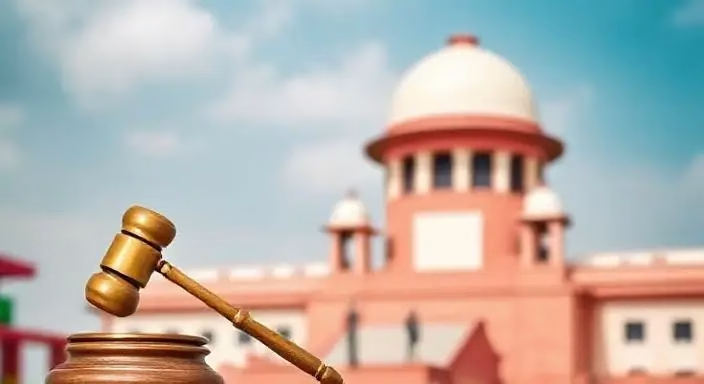Introduction
Loan recovery plays a vital role in the banking sector, but it is essential for financial institutions to adhere to legal and ethical guidelines when dealing with loan defaulters. The Supreme Court and High Courts of India have consistently ruled to protect borrowers from harassment, coercion, and illegal recovery practices by banks and non-banking financial companies (NBFCs).
In this blog post, we will explore landmark judgments, legal precedents, and the rights of borrowers in loan recovery cases. We will also examine how courts interpret RBI guidelines, the provisions of the Bhartiya Nyay Sanhita (BNS), and Consumer Protection laws in relation to borrower protection.
1. Key Legal Provisions Governing Loan Recovery
Before diving into case laws, it is crucial to understand the legal framework that governs loan recovery in India.
(i) Bhartiya Nyay Sanhita (BNS), 2023
- Section 349 BNS – Criminal Intimidation
- Threats or intimidation by loan recovery agents can lead to up to two years of imprisonment.
- Section 351 BNS – Intentional Insult to Provoke Breach of Peace
- Abusive or offensive behavior by recovery agents is punishable.
- Section 358 BNS – Assault or Use of Criminal Force
- Physical harassment or illegal forceful repossession may attract criminal charges.
- Section 503 BNS – Wrongful Confinement
- Illegal detention or forceful confinement of a borrower is considered a criminal offense.
(ii) Reserve Bank of India (RBI) Guidelines
- RBI Circular DBOD.No.Leg.BC.104/09.07.007/2002-03 – Prohibits coercion in loan recovery.
- RBI Circular RBI/2019-20/226/DOR.No.BP.BC.76/21.04.048/2019-20 – Banks must provide written notice before appointing a recovery agent.
- RBI Circular RBI/2013-14/512 – Public shaming of defaulters is illegal.
2. Landmark Supreme Court Judgments on Loan Recovery
(i) ICICI Bank Ltd. v. Shanti Devi Sharma (2008)
Supreme Court Verdict:
- The court ruled that banks cannot employ recovery agents who use force, threats, or coercion to recover loans.
- Banks must strictly adhere to RBI guidelines and cannot engage in unethical recovery practices.
Impact:
- This case set a precedent for borrower protection, ensuring due process is followed by banks.
(ii) Rohit K. v. State of Maharashtra (2015)
Supreme Court Verdict:
- The illegal repossession of assets without notice violates principles of natural justice.
- The court ordered strict actions against banks that engage in unethical loan recovery.
Impact:
- Borrowers must receive proper legal notice and an opportunity to repay before any recovery action is taken.
(iii) Sardar Associates v. Punjab & Sind Bank (2009)
Supreme Court Verdict:
- The court emphasized that restructuring of loans should be encouraged before enforcing harsh recovery measures.
- Banks cannot deny restructuring options to borrowers in financial distress.
Impact:
- Borrowers have the right to negotiate loan restructuring before legal proceedings are initiated.
(iv) Jayant Verma v. Union of India (2022)
Supreme Court Verdict:
- Harassment and mental agony caused by recovery agents violate borrowers’ fundamental rights.
- The court directed the RBI to strengthen its guidelines on loan recovery practices.
Impact:
- Following this ruling, the RBI introduced stricter regulations to enhance borrower protection.
3. Key High Court Judgments on Loan Recovery
(i) Delhi High Court: Vijay Kumar v. HDFC Bank (2020)
Judgment:
- The court ruled that HDFC Bank violated RBI guidelines by freezing a borrower’s account without notice.
Impact:
- Banks are required to provide prior intimation before freezing or seizing a borrower’s account.
(ii) Bombay High Court: Ramesh Sharma v. ICICI Bank (2019)
Judgment:
- The forceful repossession of a vehicle without proper notice was deemed illegal.
- The court awarded compensation to the borrower.
Impact:
- Borrowers have the right to challenge illegal repossession of assets.
(iii) Madras High Court: Muthuvel v. Axis Bank (2021)
Judgment:
- Bank employees were held personally liable for harassment conducted by recovery agents.
Impact:
- Borrowers can sue individual bank officers for harassment.
(iv) Kerala High Court: Priya R. v. State Bank of India (2023)
Judgment:
- The publication of borrower details on social media was ruled as a violation of privacy rights.
Impact:
- Public shaming of borrowers is illegal, allowing victims to file defamation cases.
4. Borrowers’ Rights as Established by the Courts
The Supreme Court and High Courts have affirmed the following rights of borrowers:
- Right to Prior Notice:
- Borrowers must receive written intimation before any recovery action.
- Right Against Harassment:
- Recovery agents cannot use threats, abusive language, or intimidation.
- Right to Loan Restructuring:
- Borrowers have the right to negotiate restructuring options if they face financial hardship.
- Right to Legal Protection:
- Borrowers can file cases in Consumer Courts for harassment or unethical recovery practices.
- Right Against Public Shaming:
- Banks are prohibited from publishing borrower details publicly.
5. What to Do If You Face Harassment from Recovery Agents?
If you are being harassed by loan recovery agents, consider taking the following steps:
Step 1: File a Complaint with the Bank
- Submit a written complaint to the bank’s grievance redressal system.
Step 2: Report to the RBI Banking Ombudsman
- File an online complaint at RBI Complaint Portal.
Step 3: Lodge a Police Complaint
- File an FIR under Sections 349, 351, 503, and 358 of the BNS.
Step 4: Approach the Consumer Court
- Seek compensation for mental agony under the Consumer Protection Act, 2019.
Step 5: File a Writ Petition in the High Court
- If harassment continues, borrowers can approach the High Court for relief.
6. Conclusion
The Supreme Court and High Courts have consistently upheld borrower protection, ensuring that banks adhere to RBI guidelines and legal procedures. If you are facing harassment or unlawful loan recovery actions, it is crucial to seek legal assistance promptly.
For expert legal advice, visit www.advocateadarsh.com or consult Advocate Adarsh Singhal for assistance in filing complaints and pursuing legal action. Protect your rights and ensure ethical treatment in loan recovery!

